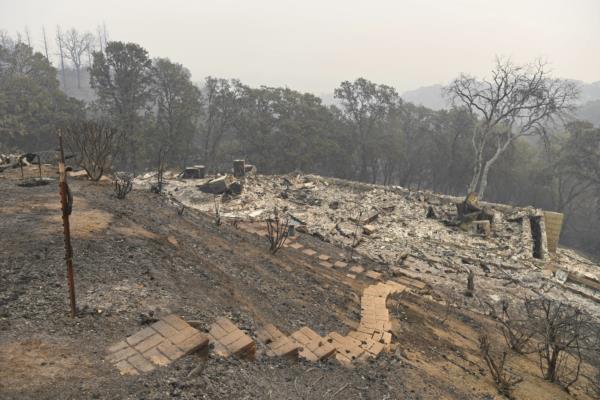
Amid the devastating wildfires that ravaged Sonoma County's wine country in 2020, farmworkers like Maria Salinas faced dangerous conditions while harvesting grapes. The fires emitted toxins that caused health issues, with Salinas even requiring emergency medical attention due to breathing difficulties. Despite the risks, many farmworkers felt compelled to continue working out of necessity, exposing themselves to hazardous air pollution.
A recent study highlighted the heavy toll that wildfires and air pollution are taking on farmworkers worldwide. In Sonoma County, researchers found that existing safety programs were inadequate in protecting farmworkers during wildfires. Recommendations included implementing air quality monitors at work sites, enforcing stricter employer requirements, providing emergency plans and multilingual trainings, conducting post-exposure health screenings, and offering hazard pay.
Farmworkers, who are often economically disadvantaged and face challenges such as lack of benefits and discrimination, are particularly vulnerable to working in hazardous conditions. During the 2020 wildfires, many farmworkers continued working in evacuation zones, risking exposure to harmful levels of air pollution.
The study analyzed air quality data from various monitoring sources, revealing numerous days of unhealthy air quality during the wildfires. Researchers emphasized the lack of post-exposure monitoring for farmworkers, highlighting the potential long-term health impacts of wildfire smoke inhalation.
Concerns were also raised about the county's Agricultural Pass program, which lacked clear standards and enforcement protocols. The approval process for farmworkers to enter evacuation areas for essential activities was found to be insufficient, posing additional risks to workers' health and safety.
Experts underscored the immediate health effects of inhaling wildfire smoke, which can lead to respiratory issues and exacerbate existing health conditions. The study's findings shed light on the need for better protections for farmworkers, who play a crucial role in sustaining the nation's food supply.
Despite the essential nature of their work, farmworkers often lack access to healthcare coverage, leaving them vulnerable to health risks without proper support. The study's recommendations aim to address these disparities and advocate for improved safety measures to safeguard farmworkers' well-being.







